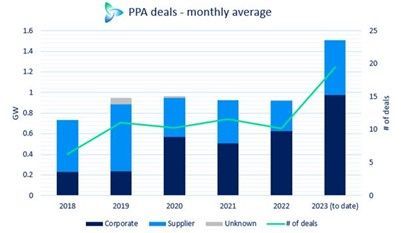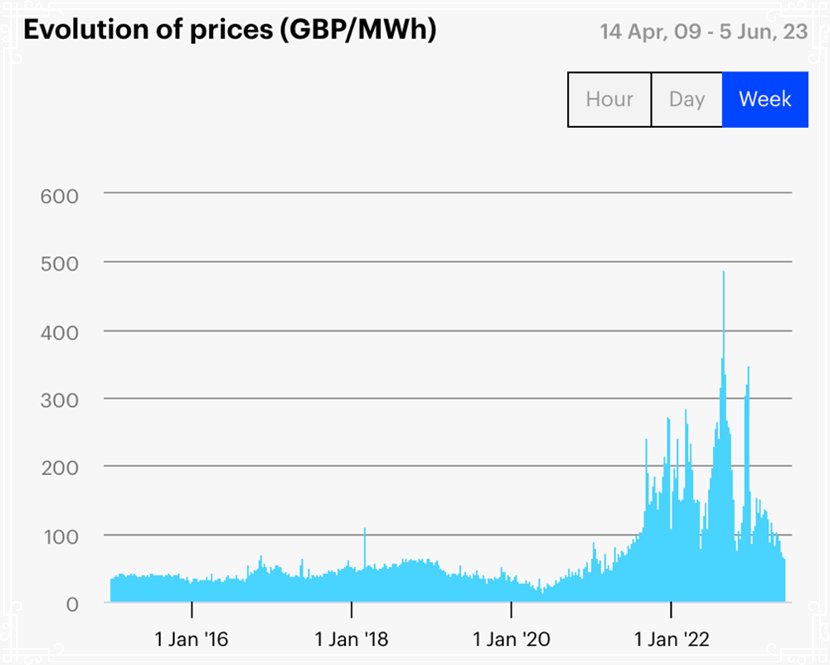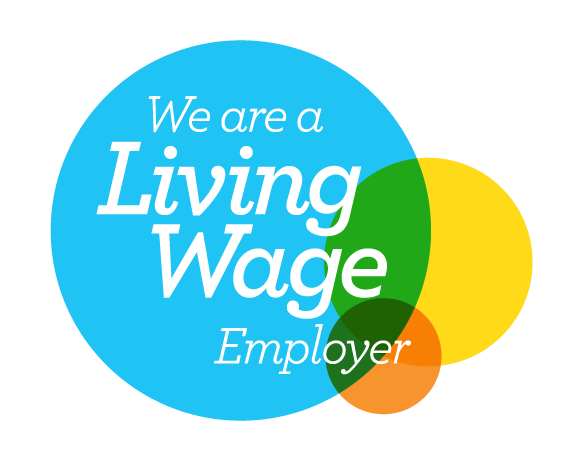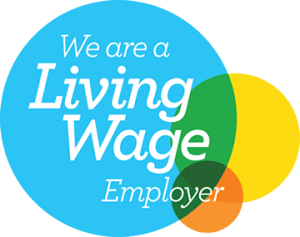Procuring Renewable Energy
How to Purchase Renewable Energy
Thought leadership article by Managing Director James Wood, who shares insight into the considerations of buying renewable energy for corporations, considering the long-term aspects, with a view to international developments in recent years.
The Drivers of Long-term Renewable Energy Procurement
UK organisations have faced the most challenging energy crisis in history, with wholesale day-ahead prices reaching £500/MWh in mid-2022. This, combined with the UK’s commitment to achieving net zero by 2050, and the resulting drive for decarbonisation, has changed the market for long-term corporate renewable energy purchasing.
Growth in Corporate Power Purchase Agreement (CPPA) Uptake
As of 2022, the global CPPA uptake reached 36.7 GW, an 18% increase over 2021. Ironically, Europe have seen a decrease from 8.7 GW to 8.1 GW. In spite of this, significant rebounds are expected in 2023, following the energy crisis. According to ICIS, European PPA activity has increased by 70% in 2023 with 3.9 GW of corporate deals signed by April.

Initiatives and Growing Interest in the UK
Despite the global clean energy market being dominated by Amazon and other corporations outside of the UK, 48 out of the 400 RE100 (an initiative of large and ambitious businesses committed to 100% renewable electricity) companies are UK-based, with a range of landmark deals announced recently. AstraZeneca entered into a partnership with Future Biogas in December 2021 to build a biomethane plant to supply green gas under a long-term arrangement. The City of London Corporation started sourcing solar power from a 50 MW plant in Dorset in early 2023. Canary Wharf Group announced a deal with Brookfield to source power from a 60 MW wind farm in May 2023. In recent months, we have seen a flurry of corporate buyers joining the hunt for suitable UK renewable energy plants.
Key Challenges in the UK
Corporate PPAs are now well understood in the US, southern Europe, and Scandinavia. However, the adoption rate has not grown as fast in the UK, for 3 main reasons:
- The Government’s Contracts for Difference (CfD) scheme, which guarantees long-term prices for renewable energy projects, has swept up 26.1 MW of capacity between 2015 and 2022.
- The energy price crisis in 2021-22 led some generators to take advantage of higher prices in short-term day-ahead markets rather than committing to a long-term much lower price.
- The UK grid is currently experiencing significant capacity constraints which prevent new projects from gaining access to the grid.
In addition to these external factors, many corporates are still getting to grips with the challenges of originating and structuring corporate PPAs. Many utility providers are yet to offer compatible supply contracts that enable the sleeving of corporate renewable energy power through a physical delivery mechanism. At the same time, corporates are evaluating the impact of virtual mechanisms both in relation to their sustainability objectives and the financial implications of such structures.
Route to Market
Organisations that have set near-term net zero targets in line with the Science Based Targets Initiative (SBTi) are likely to struggle to achieve net zero without radical investment in energy reduction and long-term corporate renewable energy procurement. The critical success factors are as follows:
- Be clear on your objectives – make sure that your decarbonisation objectives are explicit and that you have the financial ability and appetite to support them by making long-term commitments with some level of uncertainty.
- Appoint advisors to speed up the process – advisors on both the buy and sell side can help move transactions through the key hurdles quicker. Challenges exist in risk management and commercial structuring which can be resolved faster based on prior experience.
- Stay flexible – it’s currently a seller’s market with fewer generators available than corporate off-takers seeking projects. A buyer must be willing to invest in establishing a strong long-term partnership as well as be flexible about the contract terms with generators.
About Optimised
Optimised is an energy and sustainability consultancy based in the United Kingdom. It has extensive experience in originating and negotiating corporate renewable energy arrangements. With a strong grounding in energy trading and risk management, as well as sustainability advisory services, and a network of renewable generators we are well-placed to support corporate PPA and GPA transactions.
BOOK YOUR 30-MINUTE ENERGY MANAGEMENT CONSULTATION
Fill in your details below to arrange a complimentary consultation with one of our experts. They will give you bespoke advice to help your business achieve all its energy needs, reducing cost, consumption and carbon.










